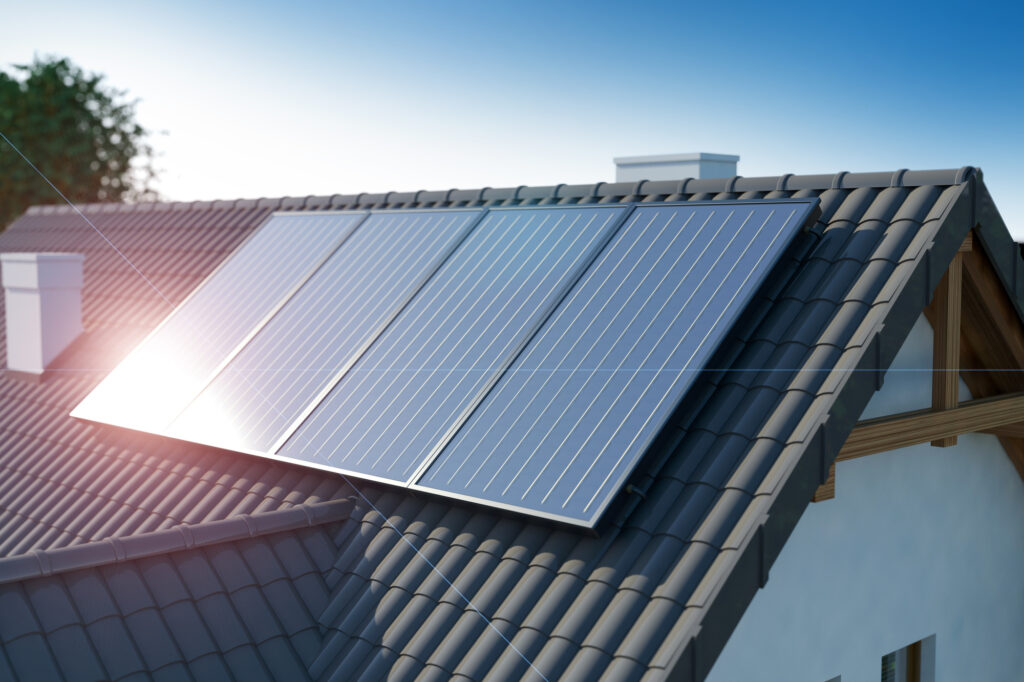The average U.S. residential solar installation is about 5KW, or 20 individual solar panels. Combined, United States solar power offsets roughly 70 million metric tons of carbon dioxide every year. That is the equivalent of planting almost 1.2 billion trees.
With the added benefit of helping produce greener energy consumption, the price of solar for the average consumer has fallen over 70% since 2010. Not a bad tradeoff.
Are you still asking, “Are solar panels worth it?” Then keep reading to make sure you are making the right decision for your home.
The Benefits of Solar Panels
The advantages of solar energy can be numerous when you’re making the decision to install a new photovoltaic solar system.
These benefits may include:
1. A Reduction in Your Electricity Bill
You will begin to see a reduction in the cost of your traditional energy bill over time with solar panels. An estimated savings of $10,000 to $30,000 over a 20-year period. Of course, you have to take into consideration the amount of electricity required by your home or business. You can also earn money back by selling your excess solar energy to the grid.
2. Government Financial Support
Solar panel installation often comes with added state and federal tax benefits and incentives. Depending on your area, you may be able to claim anywhere from 15% to 30% on installation costs, in most cases.
3. Gaining Energy Independence
Unlike oil, coal, and natural gas – the sun is nearly infinite when it comes to energy sources. Solar panels can literally be installed wherever the sun is shining. Solar panels can help you reduce your dependence on foreign energy sources while reducing your carbon footprint, too.
Take a look at the information available at https://blueravensolar.com/north-carolina/charlotte/ to gain further insight into the benefits of residential solar installations.
The Downside of Solar Panels
Disadvantages of a new solar photovoltaic system do exist, but they are far fewer than the advantages you will experience.
Some of the downsides to owning a solar panel system are:
1. High Cost of Initial Investment
The initial cost of installing a new solar panel system could run upwards of $20,000 or more dollars. It will take time to recoup your initial investment capital.
2. Dependence on Weather Patterns
Simply put, you need to be located in an area that receives a lot of sun – year-round if possible. Any area that has frequent cloudy days, storms, and dark winters will negatively affect your solar panel system efficiency. Not to mention the elongated time frame to recoup your initial investment capital.
3. Having a Fixed Structure
Once a solar energy system is installed, it is likely not going anywhere else. If you are installing a solar photovoltaic system in your home, and still plan on moving in the future, consider it an investment in the future sale price of your home. The cost of removing a solar panel system from your home and transporting it safely can become a very costly endeavor.
Are Solar Panels Worth It?
Invest more time in talking to a solar energy company in your area. They will help you better understand any gaps in your knowledge about how solar panels work and which ones are best for your area. Don’t be afraid to contact your local government municipalities to ask about solar energy incentives.
These conversations will help you decide, “Are solar panels worth it?”
We hope you enjoyed this article on the benefits and disadvantages of investing in a new solar panel system. Read more about solar energy and technology on our site and don’t forget to leave a comment below if you liked what you read.

